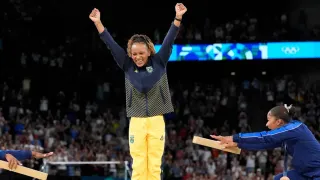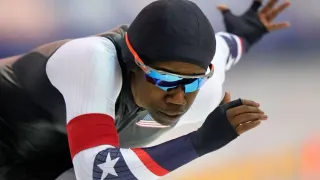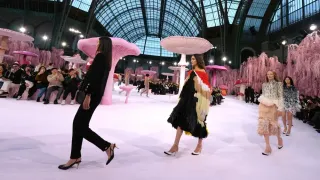February 19, 2017
Winter Reading List 2017
Gregg Shapiro READ TIME: 4 MIN.
There are some long, dark, cold nights ahead of us, and books are a tried-and-true means of escape when the world outside is unwelcoming. The following are a few suggestions to pass the time.
Hot fiction for cold nights
There is no shortage of title characters to be found in "Difficult Women" (Grove Press), the short story collection by award-winning bisexual Haitian-American novelist-essayist-memoirist Roxane Gay. Set in a gated community, the dishy and dark story "Florida" features one of the married female residents exploring the erotic same-sex pleasures of the brothel being run out of the spa on the grounds. In the multi-section "How," we learn how Hanna became involved with Laura. In "Baby Arm," a woman's relationship with a female co-worker goes in unexpected directions. Gay is as adept at short-short stories as she is at creating longer pieces that will leave readers shaken, such as the devastating "Break All the Way Down."
In David Pratt's "Wallaconia" (Beautiful Dreamer Press), just as 18-year-old Jim, who has begun to question his sexuality, is about to finally get around to having sex with girlfriend Liz, he discovers he might have feelings for older male neighbor Pat.
Set in a small New England town, "The Year of Needy Girls" (Kaylie Jones/Akashic), by lesbian writer Patricia A. Smith, recalls both Hellman's The Children's Hour and Lehane's Mystic River in a story about murder and false accusations.
Known for his groundbreaking autobiographical 1963 novel "City of Night," 85-year-old gay writer John Rechy returns with his new erotic novel of "psychosexual gamesmanship," "After the Blue Hour" (Grove).
Straight writer Andre Aciman has made quite a name for himself writing about queer characters in novels such as "Call Me by Your Name" (now a motion picture). He continues to do so in his latest, "Enigma Variations" (FSG), telling the story of bisexual Paul.
More words, more pictures
Edited by John Dugan, with a foreword by John Darnielle of the Mountain Goats, "The Empty Bottle Chicago: 21+ Years of Music/Friendly/Dancing" (Curbside Splendor) is a hefty tribute to the notorious Ukrainian Village rock club the Empty Bottle. In addition to a revealing interview with owner Bruce Finkelman, as well as with musicians Damian Kulash (OK Go), Louise Post (Veruca Salt), Kristin Kontrol (Dum Dum Girls), Tim Kinsella (Joan of Arc), queer artists JC Brooks and Che Arthur, and rock journalist Jim DeRogatis, the book includes many photographs and complete show listings from 1993-2015.
"The epicenter of one of the country's most vibrant punk scenes" may not be the way that most people think of Washington, DC, especially during the Reagan/Bush years of the 1980s, but it's true. Compiled by Scott Crawford, "Spoke: Images and Stories from the 1980s Washington DC Punk Scene" (Akashic) features profiles of more than two dozen bands, beginning with the Bad Brains and including Fugazi, Minor Threat, Shudder To Think, Jawbox, Government Issue, and SOA (with a young Henry Rollins).
Organized by original shock-jock Steve Dahl and to this day an embarrassment for the city of Chicago, the 1979 so-called Disco Demolition publicity stunt at the former Comiskey Park damaged more than some 12" disco singles and a baseball diamond. "Disco Demoliton: The Night Disco Died" (Curbside Splendor) by Steve Dahl, with Dave Hoekstra and Paul Natkin, spends a lot of time protesting the racist and homophobic implications of the event (see Bob Odenkirk's foreword) and may not change the minds of many readers, especially those for whom dance music never died. If Donald Trump could read, he would love this book.
Speaking the truth
"LGBTQ Stats: Lesbian, Gay, Bisexual, Transgender, and Queer People by the Numbers" (The New Press), by married couple David Deschamps and Bennett Singer with an afterword by Jennifer Finley Boylan, collects the "facts and figures that chronicle the ongoing LGBTQ revolution." Included in the authors' finds are statistics on timely topics such as international issues, violence and discrimination, media and public opinion.
The photo-filled memoir "The Harmony of Parts" (Orange Frazer Press), by John Garabedian with Ian Aldrich, tells the story of openly gay Garabedian, a familiar face and voice to folks in the Boston area via his work as a disc jockey on radio, as well as host of TV's Open House Party .
Though he only lived to be 33, writer Denton Welch left an indelible mark with writing and painting. "Good Night, Beloved Comrade: The Letters of Denton Welch to Eric Oliver" (Univ. of Wisconsin Press), edited by Daniel J. Murtaugh, compiles and annotates 51 letters written by Welch to Oliver, his "companion, comrade, lover, and caretaker," in the final years of his brief life.
"Identity Unknown: Rediscovering Seven American Women Artists" (Bloomsbury) by award-winning writer Donna Seaman introduces or reacquaints readers to forgotten female artists Gertrude Abercrombie, Joan Brown, Ree Morton, Lo�s Mailou Jones, Lenore Tawney, Christina Ramberg and Louise Nevelson.
Knott's legacy
A beloved instructor at Emerson College in Boston for more than 25 years, the late poet and educator Bill Knott is celebrated in "I Am Flying Into Myself: Selected Poems, 1960-2014" (FSG), edited by Thomas Lux, who also wrote an informative introduction.
Emerson College classmates from the class of 1984 as well as Knott devotees, poets Denise Duhamel and Kim Roberts both have notable new books out this winter. Separated into three sections (dedicated to Shulamith Firestone, Andrea Dworkin and Mary Daly), Duhamel's "Scald" (Univ. of Pittsburgh Press) uses form (villanelles and pantoums) to broadcast her potent feminist message. Roberts' "The Scientific Method" (WordTech) continues the poet's exploration of the vast world of science (including Walt Whitman's brain and Carl Sagan's turtleneck sweater), as well as the experience of living in Washington, DC.
Kathleen Rooney, a student of Bill Knott's while an MFA candidate at Emerson College, is the author of the novel "Lillian Boxfish Takes a Walk" (St. Martin's Press), which follows the octogenarian title character on a New Year's Eve 1984 journey across Manhattan and through her life.






